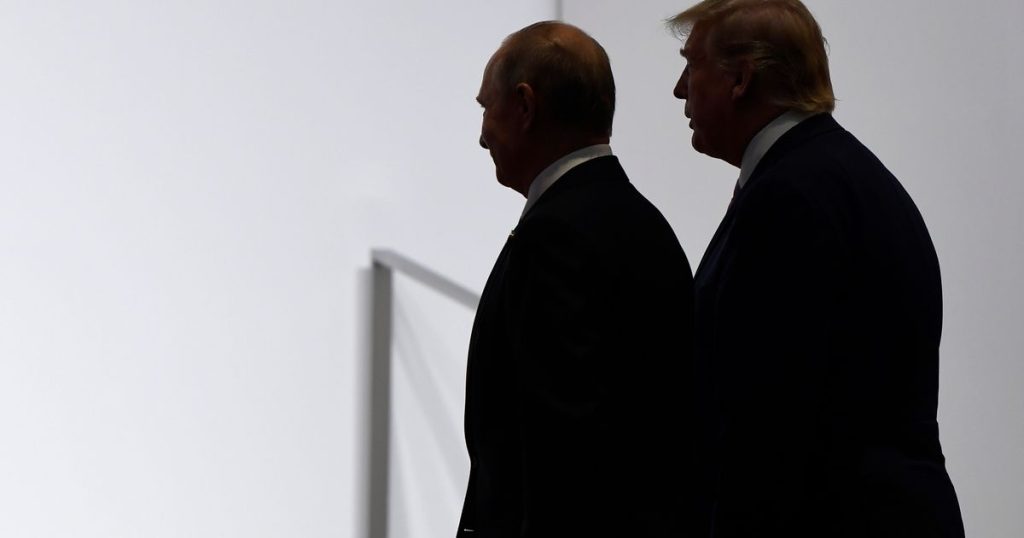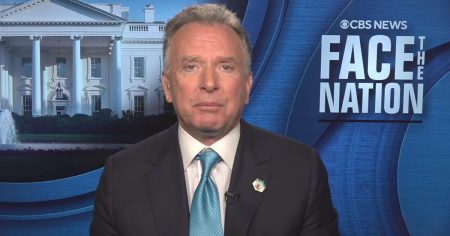The Dance Between Loyalty and Condemnation
In the intricate world of U.S. politics, Republican lawmakers are caught in a delicate balancing act. While many have been vocal critics of Russian President Vladimir Putin, they are noticeably silent when it comes to President Donald Trump’s recent hostile rhetoric towards Ukraine. This shift is particularly evident as Trump’s stance towards Russia has softened, despite Russia’s ongoing aggression against Ukraine, which began nearly four years ago. At the Conservative Political Action Conference (CPAC), Trump spread falsehoods about U.S. aid to Ukraine, painting Kyiv as the obstacle to peace. This has left GOP officials, traditionally supportive of Ukraine, in a quandary, struggling to reconcile their condemnation of Putin with loyalty to Trump.
A History of Contrasting Positions
Senators Roger Wicker, John Kennedy, and Thom Tillis have been outspoken in their criticism of Putin, labeling him a "war criminal" and a threat to democracy. However, when Trump’s actions and rhetoric come into question, these same senators avoid direct criticism, reflecting a broader pattern within the GOP. This inconsistency is perplexing, especially given their strong stance against Putin, yet they refrain from challenging Trump, possibly due to his influence within the party. Their silence speaks volumes about the complex interplay of loyalty and political strategy.
Walking a Thin Line
Republican officials like Senators Markwayne Mullin and Representative Mike Lawler are attempting to navigate this tricky terrain. Mullin emphasizes Trump’s criticism of Putin, though without providing specific examples, while Lawler acknowledges the threat posed by Russia, China, and Iran. These statements highlight the difficulty of maintaining a pro-Ukraine stance while aligning with Trump’s foreign policy, which often appears favorable to Russia. Lawler suggestively hints that Ukraine may need to compromise with Trump to maintain U.S. support, underscoring the political realities at play.
The True Cost of “Peace”
Trump’s negotiation tactics have raised eyebrows, particularly his initial exclusion of Ukraine from peace talks and the demand for $500 billion in rare earth minerals as compensation for U.S. aid. Democratic Senator Jack Reed批评这些建议为向俄罗斯投降的行为,指出这不仅不切实际,还违背了支持乌克兰的原则。Meanwhile, Ukrainian President Volodymyr Zelenskyy has firmly rejected the proposal, considering it a dangerous precedent that undermines Ukraine’s sovereignty. Zelenskyy’s stance highlights the real-world implications of such political maneuvers, emphasizing that true peace cannot be achieved at the expense of Ukraine’s security and dignity.
A Dangerous Precedent
The situation is further complicated by the ongoing attacks on Ukraine, with over 250 strike drones launched in a single night, underscoring the urgency of the conflict. Zelenskyy has expressed willingness to sacrifice his presidency for NATO protection, a desperate measure that illustrates the high stakes involved. This has prompted calls for continued pressure on Russia, ensuring that any negotiations include Ukraine and do not isolate them, as initially proposed by Trump. The proposed peace deal, expected to be signed soon, looms large, with critics warning against deals that may sacrifice Ukrainian interests for the sake of expediency.
The Path Forward
The path ahead is fraught with challenges. Democrats like Senator Reed advocate for maintaining pressure on Russia to ensure any negotiations are fair and inclusive. Meanwhile, Republican officials face the daunting task of balancing their loyalty to Trump with their commitment to Ukraine’s cause. The situation demands a nuanced approach, one that prioritizes Ukraine’s security without alienating political allies. As the conflict evolves, the ability of U.S. lawmakers to navigate this complex diplomacy will be crucial in shaping the future of Ukraine and the geopolitical landscape.
In conclusion, the balance between political loyalty and international diplomacy is a delicate one. The choices made by U.S. lawmakers will have far-reaching consequences, not just for Ukraine, but for global stability. As the situation unfolds, the world watches, hoping for a resolution that honors the principles of sovereignty and justice.















